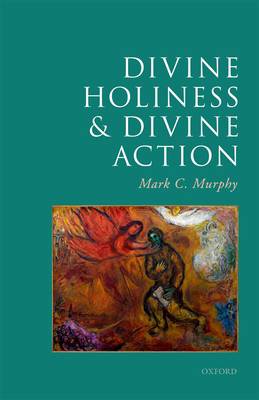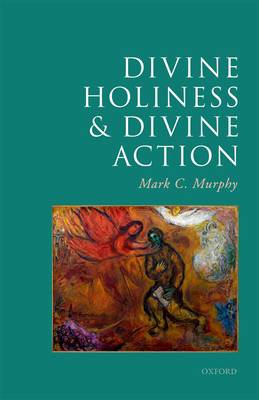
Bedankt voor het vertrouwen het afgelopen jaar! Om jou te bedanken bieden we GRATIS verzending (in België) aan op alles gedurende de hele maand januari.
- Afhalen na 1 uur in een winkel met voorraad
- In januari gratis thuislevering in België
- Ruim aanbod met 7 miljoen producten
Bedankt voor het vertrouwen het afgelopen jaar! Om jou te bedanken bieden we GRATIS verzending (in België) aan op alles gedurende de hele maand januari.
- Afhalen na 1 uur in een winkel met voorraad
- In januari gratis thuislevering in België
- Ruim aanbod met 7 miljoen producten
Zoeken
Omschrijving
Holiness is the attribute most emphatically ascribed to God in Scripture, but there has been little attention devoted to characterizing and considering the entailments of divine holiness. In Divine Holiness and Divine Action, Mark C. Murphy defends an account of holiness indebted to Rudolf Otto's description of the experience of the holy as that of a mysterium tremendum et fascinans. God's being holy consists in God's being someone with whom intimate union is both extremely desirable for us and yet something for which we--and indeed any limited beings--are unfit. This notion of divine holiness is useful for addressing disputed theological questions regarding divine action. In contrast to standard accounts of divine action that begin with assumptions regarding God's moral perfection or God's maximal love, the appeal to divine holiness supports a rival framework for explaining and predicting divine action--the holiness framework--according to which God is motivated to act in ways
that are a response to God's own value by keeping distance from that which is deficient, defective, or in any way limited in goodness. This study exhibits the fruitfulness of a reorientation from the morality and love frameworks to the holiness framework by showing how such a reorientation suggests distinct approaches to perennial problems of divine action regarding creation, incarnation, atonement, and salvation. From the treatment of these perennial problems, a general theme regarding divine action emerges: that God's interaction with the world exhibits a radical sort of humility.
that are a response to God's own value by keeping distance from that which is deficient, defective, or in any way limited in goodness. This study exhibits the fruitfulness of a reorientation from the morality and love frameworks to the holiness framework by showing how such a reorientation suggests distinct approaches to perennial problems of divine action regarding creation, incarnation, atonement, and salvation. From the treatment of these perennial problems, a general theme regarding divine action emerges: that God's interaction with the world exhibits a radical sort of humility.
Specificaties
Betrokkenen
- Auteur(s):
- Uitgeverij:
Inhoud
- Aantal bladzijden:
- 286
- Taal:
- Engels
- Reeks:
Eigenschappen
- Productcode (EAN):
- 9780198864783
- Verschijningsdatum:
- 18/04/2021
- Uitvoering:
- Hardcover
- Formaat:
- Genaaid
- Afmetingen:
- 155 mm x 236 mm
- Gewicht:
- 566 g

Alleen bij Standaard Boekhandel
+ 418 punten op je klantenkaart van Standaard Boekhandel
Beoordelingen
We publiceren alleen reviews die voldoen aan de voorwaarden voor reviews. Bekijk onze voorwaarden voor reviews.









